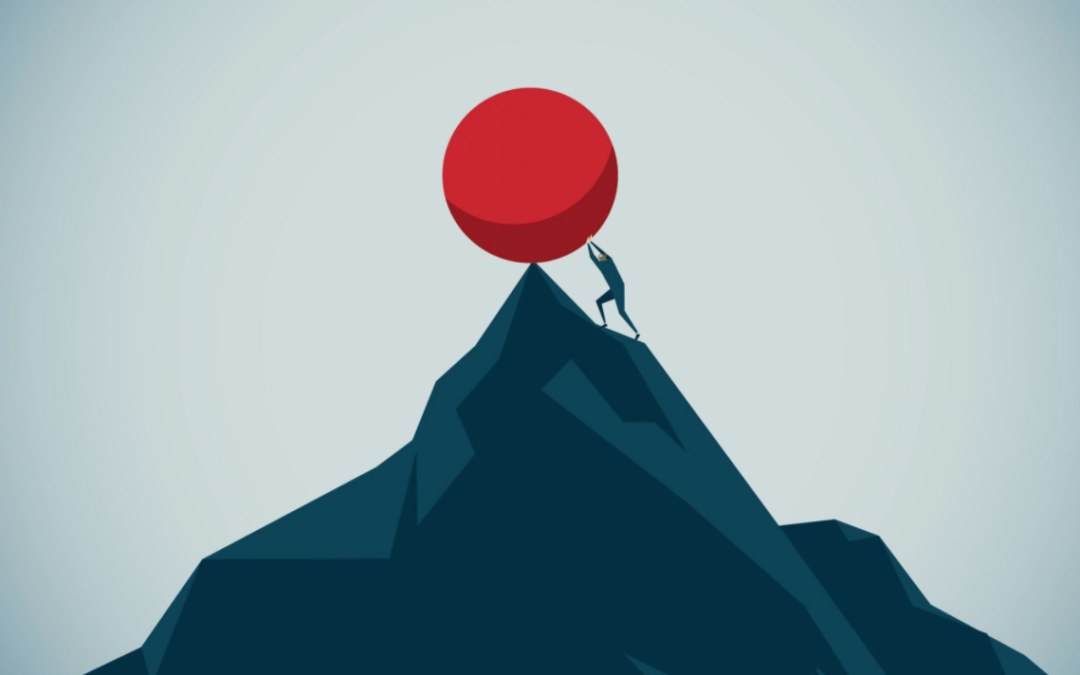We all experience stress. We all face trauma, adversity and loss. But we don’t all bounce back the same way. How resilient we are plays a large part in our attitude, our health and our recovery – from whatever it is we are recovering from.
What is resilience? It is the capacity to recovery quickly from adversity. Psychologists define resilience as the process of adapting well in the face of difficulty, adversity, tragedy, trauma, and other difficult experiences during their lifetime. As difficult as life can get, there are aspects of your life you can control. Learning to do so, to “bounce back” without incurring the maximum damage, not only helps during times of stress, but will strengthen your ability to cope throughout your life. Resilience allows you to learn and grow from your experiences, not run and hide from them.
And what resilience isn’t? Resilience is NOT life without difficulty, adversity, tragedy, trauma, and other difficult experiences during their lifetime. And it’s not a God-given trait only some possess. Resilience is learnable. It involves behaviors, thoughts and actions that we can learn to allow us to cope better and faster.
Resilience involves your health, your relationships, your service, and your intentions.
- Healthy habits. A positive and healthy lifestyle supports not only your physical well-being, but your mental health. Develop habits that will increase your energy and reduce emotional pulls such as depression and stress. Be mindful. Avoid negativity. Be intentional. Move. Eat healthy. Give your body and mind the fuel it needs to be resilient. How long has it been since you focused on improving YOUR life? Do it! There’s strength in living healthy.
- Healing connections. It’s easy to withdraw and isolate when we are facing difficulties, but human connection is a healing factor both emotionally and physically. Develop friendships with people who are positive, supportive, and authentic. Find compassionate, caring people and groups to spend time with. Focus on strengthening your relationships with people who care about you. How long has it been since you invited a friend to lunch? Do it! There’s strength in numbers.
- Self-care actions. Stress affects not just your mental state of being, but your physical state as well. It’s important to calendar time for yourself. Provide outlets for your anxiety and build reserves of hope and faith to battle anxiety and depression. How long has it been since you took time for you? A hot bath, a yoga class, a long walk, a good book, an hour of journaling? Do it! There’s strength in your well-being.
- Focused Passion. Without purpose, life is nothing but one day after another. Find your passion. Set goals, Be proactive. Keep moving forward. When you have purpose, your life becomes more than a repeat of days. Find a way to help others. Look for the good in what’s happening to you – no matter how hard your trial, you are learning something from it. The more you focus on a purpose, the more strength you will have and worth you will feel. How long has it been since you set a goal? Do it! There’s strength in holding yourself accountable.
- Hope matters. Never lose hope. Focus on the positive. Life does go on. It doesn’t always feel like it, but it does. Find the good in your life and build on it. You may not be able to change what’s happening, but you can always change how you react to it. We have to learn to accept change. It’s always there. But change is always a bit scary, so think about what you want, not about what you are afraid of. Send those positive vibes out and build on the positive energy you are feeling. How long has it been since you sent positive vibes into the universe? Do it! There’s strength in hope.
And finally, learn from your past, learn from other’s experiences, learn from the world around you. The chances of this being the only time in the history of the world that this has happened are, well, none. Someone, somewhere has experienced what you are, or something very similar. Your perspectives and positions may be different, but you both have the opportunity to maintain positivity and move forward from a very difficult time in life.
Resilience is a critical trait for anyone to have a positive, successful life. It takes effort and action and focus. It’s not a sleepy trait, it’s an action word. You have control over it. It takes time, patience, and well, resilience, to learn to be resilient. But you can do it. We all can.
And since we are all recovering from something – loss, disappointment, health, job loss, relationship struggles, etc….we all need to learn to be resilient.
Resilience is a verb. It’s action. It matters at home, in the office, with our colleagues, in our recovery, and throughout our life.
An unintentional leader, influencer, and socialpreneur, Jean Krisle intentionally founded and continues to lead 10,000 Beds, a 501c3 nonprofit organization now in its 7th year of operation. Building from a desire to support the many individuals without resources seeking help for a substance use disorder, Jean built 10,000 Beds from a simple idea to a nationwide, life-changing and inspirational force in the addiction & recovery community with more than $10,000,000 in addiction treatment scholarships awarded nationwide.
As an admired speaker, coach, and consultant, Jean speaks from decades of personal experience on the critical strengths of courage, hope, and resilience in business and personal lives. Jean motivates us to face each day with courage, tenacity, hope, and resiliency. She inspires all of us to recognize the strengths we’ve gained through the challenges we’ve faced.
Jean passionately reminds us that we are all in recovery from something and that recovery from anything- loss, failure, disappointment, addictions, etc. – is something we should build on and be proud of! And she teaches us how to do it! For more information about Jean’s availability please contact her via email at jean@10000beds.org.

